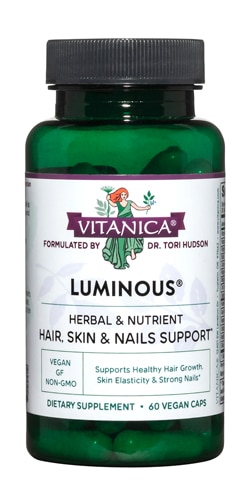A new year often arrives with a burst of energy, prompting you to embark on a litany of things you’ll change the second the calendar changes.
But a new decade? Now we’re talking.
Whatever your resolutions may be for 2020, be sure to pen in your health. And not just stress management, a healthy weight, sound sleep and regular exercise, either: Most experts agree that health screenings are not only vital to your general wellness but may also save your life.
As Donnica Moore, MD, put it to WebMD, “We know that the earlier we identify any potential health problems, the better our outcome will be. And if you are totally well, it gives you great reassurance about a whole list of things you don’t need to worry about.”
With this in mind, here are the seven top types of health screening every woman needs:
1. Pap smear and pelvic exam
The jury is out on how often women over the age of twenty-one need a pap smear and pelvic exam but the general consensus is that you should have one every one to three years after three normal consecutive tests.
Why?
Pap smears, in which cells are taken from your cervix with a small brush and then examined for changes, test for cervical cancer—the fourth most prevalent cancer in women (and one with a high global mortality rate). A pelvic exam, meanwhile, examines your female organs—your uterus, cervix, fallopian tubes, and ovaries, as well as your bladder and rectum—for signs of illness. Sure, there’s discomfort involved—but those ten minutes of tenderness are well, well worth-it.
2. Weight
Stepping on the scale may be quite common among women, but for those who don’t? Consider checking in with your primary care physician to see where you, well, weigh in: Obesity is on the rise, affecting more than one-third of American adults and potentially leading to heart disease, diabetes, and cancer, the NCSL reports. Having your doctor weigh you (and measure your body mass index) will allow you to see where you stand—and where you need to make adjustments, if necessary.
“You have to get over a little bit of that anxiety—your weight is what it is, whether you’re measuring it or not,” says Leslie Heinberg, PhD, Director of Enterprise Weight Management. “…having that information is going to allow you to make the small tweaks to your lifestyle to continue toward what your goals are.”
This recommendation isn’t just for those who may be prone to weight gain, either: If your BMI is below 18.5, you may experience nutritional deficiencies, a weakened immune system and fertility problems.
3. Cholesterol profile
The CDC recommends cholesterol screenings every four to six years for adults over the age of seventeen. Blood may be drawn—which is a major ouch for some—but high levels of a certain type of cholesterol, known as LDL (or low-density lipoprotein), may lead to a range of health complications, including atherosclerosis, heart disease and heart attack. A cholesterol profile also checks for another type of fat found in your blood, triglycerides. As Medline Plus reports, “According to some studies, high levels of triglycerides may increase the risk of heart disease, especially in women”—and heart disease, we’ll remind you here, is the leading cause of death in women.
4. Breast cancer screening
The statistics on breast cancer are staggering: One in eight women will develop breast cancer in her lifetime, and, on average, every two minutes a woman is diagnosed with breast cancer in the United States. And yet, the National Breast Cancer Foundation, Inc. has good news to report too: Deaths caused by breast cancer have been declining for the last thirty years, thanks in part to better screening and early detection.
With this in mind, set up a conversation with your health care professional to discuss the frequency with which you should get a mammogram: New guidelines recommend that women should start getting them every one to two years at age 45 and older, but a genetic predisposition to the disease may require more regular screenings (or genetic testing).
Additionally, don’t forget to check your breasts monthly: John Hopkins reports that “40% of diagnosed breast cancers are detected by women who feel a lump, so establishing a regular breast self-exam is very important.” (Here’s an easy-to-use guide from the National Breast Cancer Foundation, Inc.)
5. Blood pressure test
We may innocuously blame that spell of wooziness on low blood pressure here and there, but there’s nothing minor about blood pressure abnormalities.
In other words? Be sure to get yours checked. The American Heart Association says that high blood pressure taxes your heart and blood vessels and makes them work harder than they should (and less efficiently to boot). Over time, this may result in atherosclerosis, as well as arrhythmia, heart attack and stroke—which causes twice as many deaths in women than breast cancer, the CDC reports. Low blood pressure, on the other hand, can cause dizziness, fainting, and an increased risk of injury from falling, says the Mayo Clinic.
6. Skin check
You may slather on the sunscreen now, but what about when you were a kid? Even if you were vigilant about your skin health early on—and are consistent about it now—it’s still important to schedule an appointment for a skin check with a dermatologist once a year. Take it from Ellen Marmur, MD: “It is the best way to spot skin cancers early, and if they are caught early, skin cancers are 100 percent curable. It takes just a few minutes once a year to gain peace of mind about your skin.”
If you’ve had significant sun exposure in your lifetime, have a family history of melanoma, fair skin, or the presence of multiple unusual moles—all increased risk factors for skin cancer—you may need to see a dermatologist more often. Whatever the case may be, also be sure to give your skin a good, long look at least once a month for any changes.
7. Mental health screening
Your teeth get a full examination twice a year—or so we hope—but how often do you check in with your brain? Given that women are seventy percent more likely to develop depression than men (yes, seventy), it’s imperative that you book an appointment with a professional if you or your loved one have noticed any changes in your sleep, eating and behavioral patterns (such as insomnia, weight gain or loss, or a loss of interest in the things you used to love). Even if you feel fine, be sure to pause, go inward, and reflect: Does your brain feel happy? Does your heart feel free? Are you engaged with the world and feeling hopeful and vital?
A healthy mind, after all, is one of the biggest precursors to a healthy body—all, decade, long.




